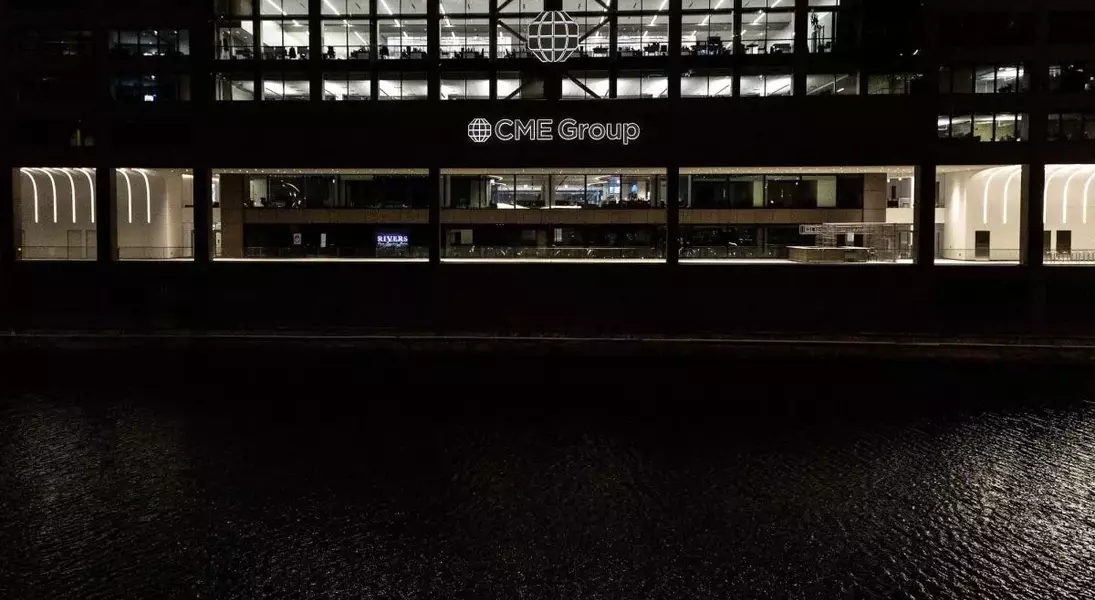In a strategic move to adapt to the evolving financial landscape, CME Group Inc., the renowned Chicago-based exchange operator, has received approval from the National Futures Association to establish its own futures commission merchant (FCM). This decision, which has drawn swift criticism from some market participants, aims to position the company for the future and ensure it can quickly respond to its clients' changing business needs.
Navigating the Changing Tides of the Financial Industry
Adapting to the Crypto Market's Vertical Integration
CME Group's decision to establish its own FCM comes in response to the vertically integrated model observed in the cryptocurrency market. The now-defunct FTX exchange had previously sought approval to clear crypto derivatives trades without the involvement of intermediaries such as FCMs, a move that raised concerns among industry players. CME's application for an FCM is seen as a defensive measure to stay ahead of the curve and adapt to the evolving market dynamics.Ensuring Flexibility and Responsiveness
According to CME Group's CEO, Terry Duffy, the company's FCM will enable it to "quickly adapt to our clients' changing business needs." This proactive approach reflects the exchange operator's desire to remain agile and responsive in an industry that is constantly in flux. By having its own FCM, CME Group aims to maintain a strong position and be better equipped to navigate the uncertainties of the future.Addressing Potential Conflicts of Interest
The approval of CME's FCM application has raised concerns among some industry players, including the Futures Industry Association (FIA). The FIA has voiced its belief that "inherent conflicts of interest exist when one organization controls multiple market functions — trading, clearing, intermediation and market regulation." This sentiment highlights the ongoing debate around the potential risks associated with vertical integration within the financial industry.Navigating the Regulatory Landscape
As the financial industry continues to evolve, the regulatory environment is also undergoing significant changes. CME Group's decision to establish its own FCM may be seen as a proactive move to position itself for the future, where the rules and regulations governing market participants could undergo further transformation. By having its own FCM, the exchange operator aims to maintain a strong foothold and adapt to the changing regulatory landscape.Exploring New Opportunities and Challenges
The approval of CME's FCM application opens up new avenues for the exchange operator, but it also presents potential challenges. The company will need to navigate the complexities of operating an FCM, including compliance, risk management, and client relationships. Additionally, the potential conflicts of interest raised by industry players will need to be carefully addressed to ensure the integrity and transparency of the market.Implications for the Broader Financial Ecosystem
The CME Group's move to establish its own FCM has broader implications for the financial industry as a whole. It highlights the ongoing shifts in market dynamics, where traditional exchange operators are seeking to expand their capabilities and adapt to the changing landscape. This development may inspire other market participants to reevaluate their own strategies and explore similar avenues to maintain their competitive edge.In conclusion, CME Group's decision to establish its own FCM is a strategic move that reflects the exchange operator's commitment to staying ahead of the curve and adapting to the evolving needs of its clients. While the approval has drawn criticism from some industry players, it also presents an opportunity for CME Group to strengthen its position and navigate the complexities of the financial landscape. As the industry continues to evolve, the implications of this decision will likely reverberate throughout the broader ecosystem, shaping the future of market structure and regulation.You May Like

